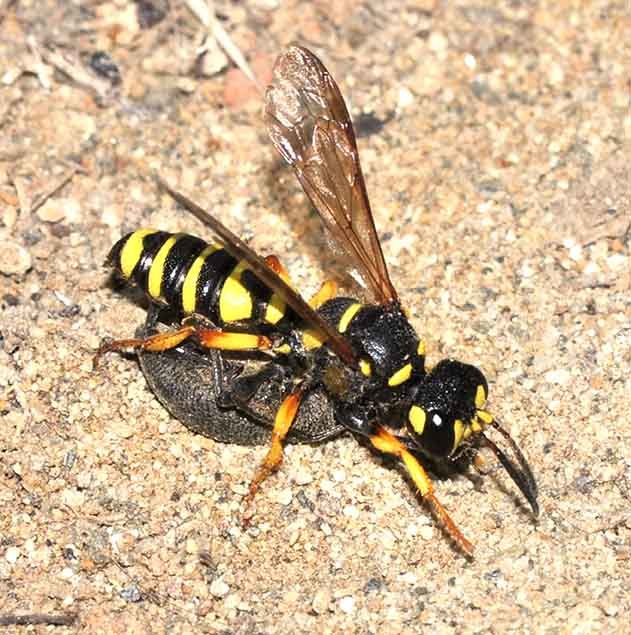A few years ago, I discovered some strange holes in my lawn. They were too small to be related to termites and I got worried about what they would be. I had been struggling to grow beautiful grass and had tried many different varieties... I certainly wasn't ready for an additional issue related to the yard! It turned out, that these holes were the entrances to the nests of some digger wasps. I asked my brother, an agronomist with more than 20 years of experience, and two friends who are agricultural engineers what they would recommend I do. My online research provided a lot of information and I wanted to let these insects be. I wasn't sure though. I know any creature was made for a specific purpose and what was annoying me was that I probably would have to stop walking barefoot in my garden. The whole purpose of trying so hard to grow a more or less uniform grass was to be as close to the earth as I could in my small property...
To sum it up, wasps are not as harmful as we are taught to believe. There are more than 15 different types. The one I spotted today in my planter seems to be from the ones widespread across North America. They are important pollinators, just like their fellow bees. The females, unlike the males, have stingers. They don't guard their nests and will not be aggressive if you don't provoke or attack them. Their sting can cause an allergic reaction, just like a bee's. Digger wasps also feed on bugs and provide awesome natural pest control. Additionally, they help the soil soak water and get aerated and are solitary beings. They are not easy to detect: you will need to wait for the sun to have set or the temperatures to be cooler to spot them. These wasps dig to build their nests underground and the females will inspect the tunnel before bringing in their prey and laying down their eggs on it. The small holes that represent the entrances are then closed. The mother dies and next summer, the larvae she laid will feed on the killed insect and will come out when it is time for them to hunt on their own.
If you are sure you want to get rid of the digger wasps in your backyard, please consider using natural ways to do it, such as modifying the type of your garden's soil. There is no need to pour chemicals into the soil for that! You can plant more as they tend to look for even the smallest spots that are barren. You can add mulch to make it harder for them to dig through your ground. Or even add soil as a top layer so that the ground is not as sandy or easy to dig through. Remember: these insects are not bugs. They actually are pest managers. And their presence can indicate the upcoming summer weather, as my grandpa used to tell us. After the past long and colder than usual winter we experienced this year, I suppose informing you that high temperatures are to be expected in July and August will make more than one of you happy

